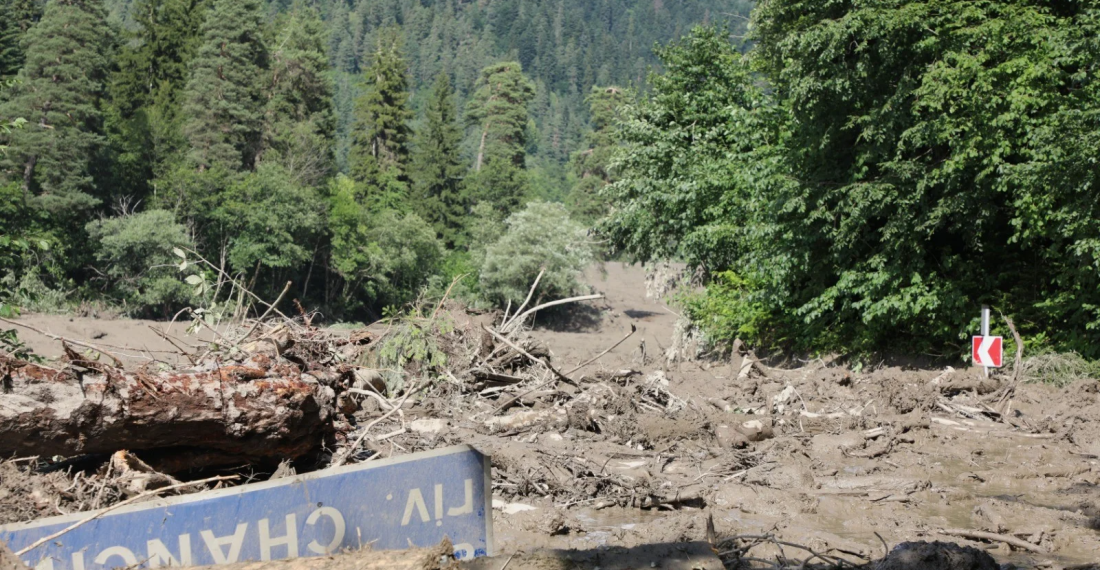At least 11 people have been killed in a landslide in Shovi, northern Georgia, on Thursday afternoon (3 August).
The landslide occurred in Shovi, in the Racha region. Immediately after the disaster struck around 70 people were moved to a safe area, and according to a statement from the Ministry of Internal Affairs, two border police helicopters and around 400 rescuers had been deployed in the first night of the rescue operation.
By the end of Thursday two people had been found dead, but by the end of Friday (4 August), the death toll had risen to 11 people with 25 people still officially considered missing, according to the Minister of Health, Zurab Azarashvili.
Georgian Prime Minister Irakli Garibashvili visited the site of the landslide early on Friday afternoon, while President Salome Zourabichvili offered her condolences to the families of the victims and said she was praying for the rescue of the rest of those still unaccounted for.
"We know how to stand together in the face of such tragedies, it’s important that we stand together and help people in need," she said. The 7 August has also been declared as a day of national mourning for the victims of the landslide.
Armenia and Azerbaijan offer assistance in rescue operation
Both Armenia and Azerbaijan have offered assistance in the rescue operation in northern Georgia.
Speaking on the phone to his Georgian counterpart Ilia Darchiashvili, Armenian Foreign Minister Ararat Mirzoyan "once again expressed condolences to his colleague, the government and the friendly people of Georgia for the loss of life due to the landslides in Racha region", according to a statement from the Armenian Foreign Ministry.
"Minister Mirzoyan offered the support of the Armenian government in fighting the disaster and eliminating its consequences," the ministry added.
Azerbaijan has also made a similar pledge. Azerbaijani Foreign Minister Jeyhun Bayramov also spoke to Ilia Darchiashvili and "expressed his condolences to the families and friends of the deceased, and wished recovery to the injured".
Turan News Agency reports that Bayramov "stressed that Azerbaijan is always close to Georgia and is ready to provide any assistance in rescue measures and elimination of the consequences of the disaster".







